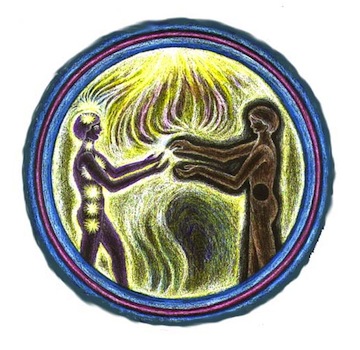When You Are Being Nice, Are You Loving Or Controlling?
By Dr. Margaret PaulMarch 21, 2016
There can be a big difference in intent between being nice and being loving. Being nice might be manipulative, while being loving means being authentic.
 Our society has long trained children to be "nice." Being nice might mean:
Our society has long trained children to be "nice." Being nice might mean:
-
Telling white lies so as not to hurt another's feelings, such as agreeing with them when you really disagree.
-
Listening politely when someone is going on and on, even when you are so bored you can hardly stand it.
-
Pretending to not be affected by rudeness or sarcasm.
- Giving compliments that you don't really mean.
In your relationships with others, being nice often means being inauthentic. It can be a form of control - attempting to control how others feel about you or how they respond to you.
Being loving, on the other hand, means being honest and authentic. It means being kind, but truthful. Being loving is about caring about yourself and the other person, rather than trying to control the other person by being nice.
Hailey and Emma have been good friends for a couple of years. They speak regularly on the phone and meet for lunch fairly often. In one of my phone sessions with Hailey, she explored a situation concerning Emma that is a problem for her.
"I really like Emma, but I frequently get bored with our conversations. She tends to go on and on telling stories that don't seem to have a point to them. Most of the time the stories are really complaints about the people in her life. I'd be interested in the stories if they led to some interesting learning or exploration, but without that, I just end up feeling dumped on. It's getting so that I don't look forward to talking with her anymore."
"Hailey, how do you respond when Emma does that?"
"Well, sometimes I say, 'It would be more interesting to me if we could explore and learn something from this situation. Other times, I just listen."
"What happens when you do say that?"
"She just keeps going on and on."
"Hailey, it sounds like you are being nice to Emma as a form of control, rather than being loving to yourself and to her. You are letting her use you, which is not good for you or her. What are you afraid of in being authentic and speaking your truth?"
"I guess I don't know how to say it without being harsh and judgmental. I don't want to hurt her."
"So, what would you say to her if you were to tell your truth?"
"All I can think to say is that I'm bored, and I think that would be hurtful to her."
"Hailey, the key here is to really let her in on your truth with a desire to learn about her rather than control her. For example, you might say, 'Emma, I have a hard time staying connected with you when you complain and tell stories. I find myself feeling bored and my mind wanders. I've mentioned it before, but you keep doing it. There must be some good reasons that it's important to you to do this.' How do you think she would respond if you said this?"
"I think she would be open to it. We could probably get into a really good discussion about it and it would be far more interesting than the story-telling and complaining."
"The challenge is that you may need to do this many times, each time she goes on and on. For most people, their behavior is habitual. Emma may be addicted to complaining as a way to get attention and sympathy. She will likely not stop just because you speak up once. You will need to speak up over and over, focusing on being loving rather than on being nice. The only way you will be able to do this is if it is more important to you to be loving to yourself and to her than it is to attempt to control how she feels about you by being nice. It is not loving to yourself to allow yourself to continue to feel bored and used, and it is not loving to her to allow her to continue to behave in a way that pushes people away from her. Your honesty and desire to learn is far more loving than your niceness."
"Well, I'm going to try this. It will be a challenge for me. I think I'm addicted to trying to control others by being nice, but I really like the idea of being authentic!"
Heal your relationships with Dr. Margaret’s 30-Day online video relationship course: Wildly, Deeply, Joyously in Love.
 Send this article to a friend
Send this article to a friend  Print this article
Print this article  Bookmarked 0 time(s)
Bookmarked 0 time(s)
Comments
| Author | Comment | Date |
|---|---|---|
| Join the Inner Bonding Community to add your comment to articles and see the comments of others... | ||

Daily Inspiration
What question governs your waking moments? Are you unconsciously governed by the question, "How can I have control over feeling safe?" Or, are you consciously guided by the question, "What is loving to myself and others?" The first question leads to anger, blame, withdrawal, numbness, resistance, compliance and defensiveness. The second question leads to connection with your spiritual Guidance and the loving evolution of your soul.
By Dr. Margaret Paul

 Share with Del.icio.us
Share with Del.icio.us Share with Digg
Share with Digg







